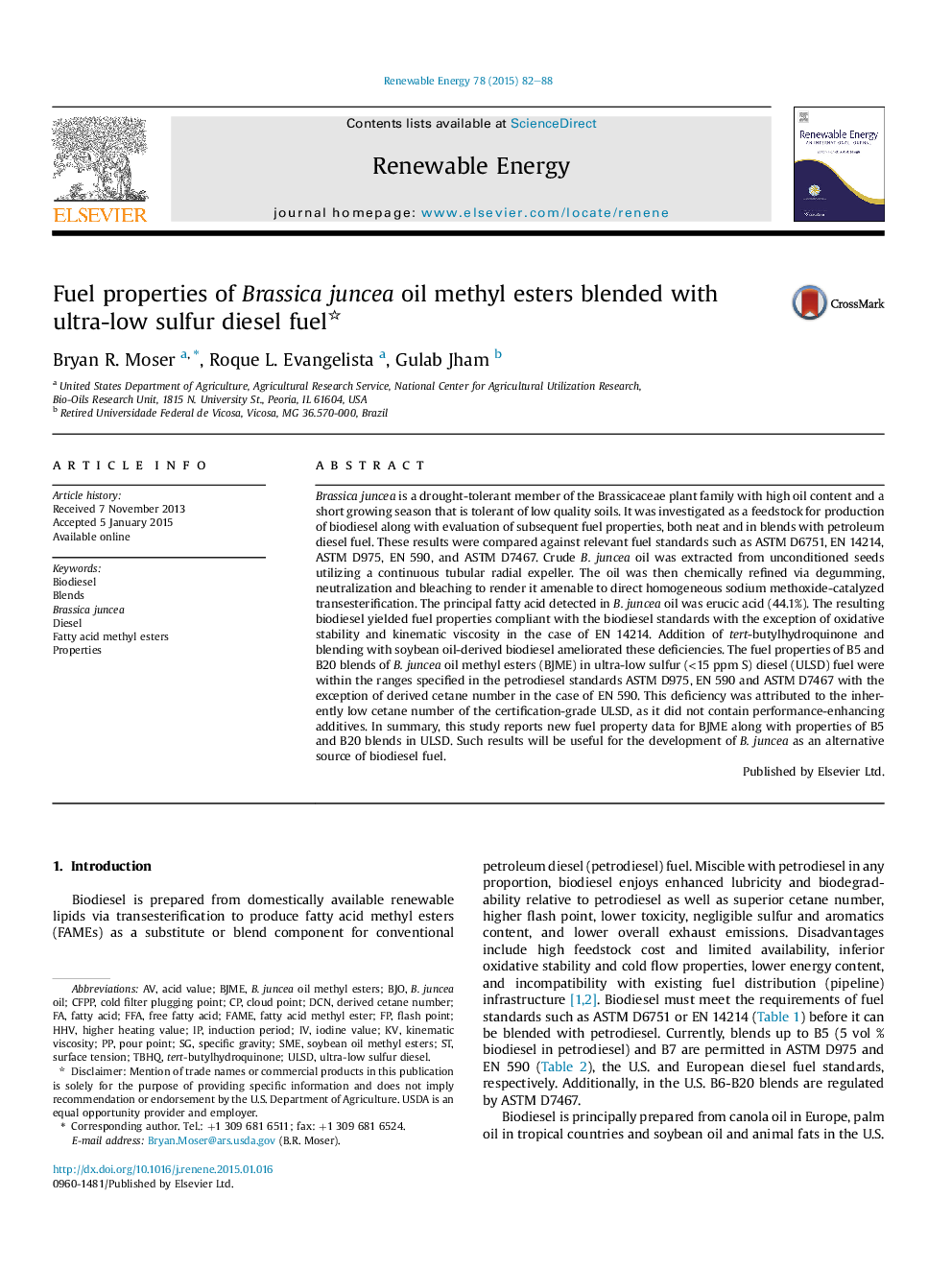| Article ID | Journal | Published Year | Pages | File Type |
|---|---|---|---|---|
| 6767131 | Renewable Energy | 2015 | 7 Pages |
Abstract
Brassica juncea is a drought-tolerant member of the Brassicaceae plant family with high oil content and a short growing season that is tolerant of low quality soils. It was investigated as a feedstock for production of biodiesel along with evaluation of subsequent fuel properties, both neat and in blends with petroleum diesel fuel. These results were compared against relevant fuel standards such as ASTM D6751, EN 14214, ASTM D975, EN 590, and ASTM D7467. Crude B. juncea oil was extracted from unconditioned seeds utilizing a continuous tubular radial expeller. The oil was then chemically refined via degumming, neutralization and bleaching to render it amenable to direct homogeneous sodium methoxide-catalyzed transesterification. The principal fatty acid detected in B. juncea oil was erucic acid (44.1%). The resulting biodiesel yielded fuel properties compliant with the biodiesel standards with the exception of oxidative stability and kinematic viscosity in the case of EN 14214. Addition of tert-butylhydroquinone and blending with soybean oil-derived biodiesel ameliorated these deficiencies. The fuel properties of B5 and B20 blends of B. juncea oil methyl esters (BJME) in ultra-low sulfur (<15 ppm S) diesel (ULSD) fuel were within the ranges specified in the petrodiesel standards ASTM D975, EN 590 and ASTM D7467 with the exception of derived cetane number in the case of EN 590. This deficiency was attributed to the inherently low cetane number of the certification-grade ULSD, as it did not contain performance-enhancing additives. In summary, this study reports new fuel property data for BJME along with properties of B5 and B20 blends in ULSD. Such results will be useful for the development of B. juncea as an alternative source of biodiesel fuel.
Keywords
DCNSoybean oil methyl estersBrassica junceatert-butylhydroquinoneCFPPHHVFFATBHQSMEULSDAcid valueIodine valueFatty acidFree fatty acidKinematic viscosityPour pointBiodieselBlendsDerived cetane numberPropertiesInduction periodDieselUltra-low sulfur dieselFatty acid methyl esterfatty acid methyl estersFAME یا fatty acid methyl esters Cloud pointCold filter plugging pointFlash pointSpecific gravitySurface tensionHigher heating value
Related Topics
Physical Sciences and Engineering
Energy
Renewable Energy, Sustainability and the Environment
Authors
Bryan R. Moser, Roque L. Evangelista, Gulab Jham,
